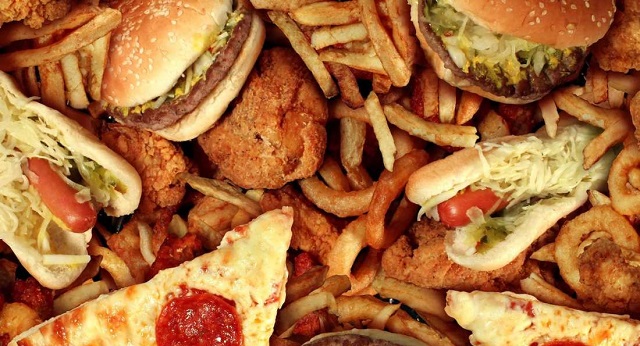
Researchers say these foods are designed to be palatable, causing people to overeat and gain weight
Health | AGENCIES | A new report has concluded that ultra-processed foods are a driving force behind the obesity epidemic as well as a major cause of chronic conditions.
The findings, published in the journal Nature Reviews Endocrinology, were a summary by scientists of existing research on the potential connection between obesity and the advent of ultra-processed foods.
The researchers reported that there is strong evidence that ultra-processed foods promote overeating and increase the risk of obesity.
They said the additives and preservatives in ultra-processed foods such as chips, pre-cooked meals, and cookies can cause excessive energy intake, disrupt the digestive system, and affect the brain’s ability to tell a person they have had enough to eat.
They add that ultra-processed foods can alter the way the body absorbs food as well as the gut microbiota’s composition and function.
The researchers urged government leaders to take action to improve the food environment by enacting measures such as package labeling and marketing restrictions.
Experts not involved in the study say this research review is important.
“This confirms what we know that ultra-processed foods are a detriment to the body,” said Mir Ali, MD, a general surgeon, bariatric surgeon, and the medical director of MemorialCare Surgical Weight Loss Center at Orange Coast Medical Center in California.
“Research on UPFs (ultra-processed foods) is accumulating at lightning speed,” added Laura Schmidt, PhD, a professor in the School of Medicine at the University of California San Francisco. “I like this review because it summarises the latest evidence and puts it all in one place.”
How ultra-processed foods affect your health
David Cutler, MD, a family medicine physician at Providence Saint John’s Health Center in California, noted that the origins of ultra-processed foods had some benefits for society. Cutler wasn’t involved in the new study.
He notes that 150 years ago in the United States, there was widespread malnutrition and vitamin deficiency as well as disease from foods not properly preserved.
Cutler said the preservatives and additives put in food more than a century ago increased their shelf life and bolstered their nutrient value.
However, he noted, in recent decades ultra-processed foods have gone overboard with these scientific advances.
“The risks are now greater than the benefits we thought we got when we added these things to ultra-processed foods,” Cutler told Healthline.
Ali notes that ultra-processed foods tend to be calorie rich and nutrient poor. They are also designed to be tasty, which can cause people to overeat.
Travis Masterson, PhD, a professor of health promotion and disease prevention at Pennsylvania State University and a member of the communications committee at The Obesity Society, said it’s not just the amount of ultra-processed foods that are consumed, it’s also what’s in them. Masterson wasn’t involved in the new study.
In particular, he notes something called energy density.
“Energy density is how many calories can be packed into a food,” Masterson told Healthline. “There is a pretty close relationship between how unhealthy a diet is and the energy density of a food.”
“Many ultra-processed foods tend to be high in energy because they strip out things like water and fiber to increase shelf stability and improve texture while also upping the levels of fat and sugar present,” he explained.
Past research has reported on the variety of health issues linked to ultra-processed foods. A study published in April stated that ultra-processed foods may be tied to more than 120,000 preventable deaths in the United States every year. A 2023 study found that ultra-processed food consumption increased the risk of heart disease, cancer, and diabetes. In addition, a 2024 study suggested a potential connection between these foods and cognitive decline.
Experts say the damage goes beyond simple weight gain and the resulting chronic conditions.
“The harms of UPF are multifaceted, but this study and others point to things like additives, emulsifiers, sweeteners, sodium, texture, and potentially additive properties,” noted Kristin Kirkpatrick, RD, the president of KAK Consulting and a dietitian at the Cleveland Clinic Department of Wellness & Preventive Medicine in Ohio. Kirkpatrick wasn’t involved in the new study.
How obesity impacts health
New research found that obesity-related cancers tripled in the past two decades. The preliminary findings, which have not been published in a peer-reviewed scientific journal, were presented on July 13 at ENDO 2025, the Endocrine Society’s annual meeting in San Francisco, CA.
According to the Centers for Disease Control and Prevention (CDC), more than 41.9% of adults in the United States are considered obese.
Now, a new measurement for obesity developed by researchers could raise that figure to more than half of U.S. adults. The European Association for the Study of Obesity (EASO) recently redefined obesity to include anthropometric measures beyond body mass index (BMI) and comorbidities, but this framework has not yet been validated.
Among the health risks associated with obesity are: type 2 diabetes, heart disease, stroke, high blood pressure, sleep apnea, liver disease, certain cancers, and pregnancy complications
“Obesity affects every organ in the body,” said Ali.
Examples of ultra-processed foods include: sweetened breakfast cereals, soda, white bread, and flavoured potato chips.
 The Independent Uganda: You get the Truth we Pay the Price
The Independent Uganda: You get the Truth we Pay the Price



